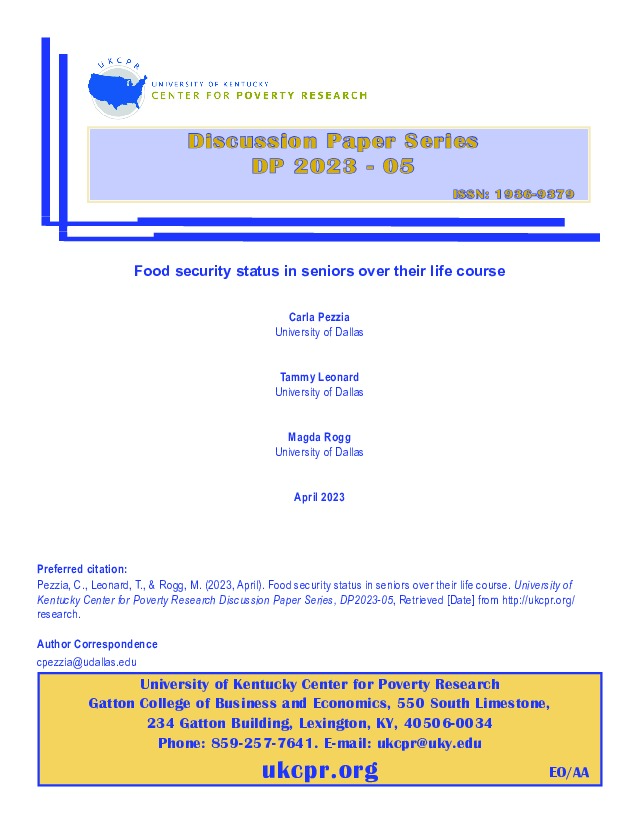The potentially complex relationships between senior hunger and the constellation of lifetime social, economic, and health statuses are not well understood, or even described. The primary purpose of this study is to assess patterns and associations among lifetime experiences of social, economic, food, and health hardship for food insecure seniors. A central feature of our work is the incorporation of a life stories approach in addition to longitudinal surveys. From June 2020- February 2021, we collected life history interviews from 107 participants. We conducted bimonthly follow-up interviews starting in August 2020 (continuing until March 2022). Interview guides for life histories and follow-up interviews included open-ended questions and survey style assessments, including the USDA Household Food Security Survey Module, the Survey of Income and Program Participation Adult Well-being Module, the WHO Quality of Life instrument, and the Mental Health Inventory 18. We conducted inductive analysis and content analysis of all qualitative data and estimated descriptive statistics of all quantitative data. Our primary themes for qualitative analysis relate to history of food insecurity, economic insecurity, and household health challenges. Additionally, the following themes emerged from our inductive analysis: violence, sexual and physical; traumatic events; racism, individual and systemic; perceptions of age discrimination; early experiences of sharecropping or leased land; and home gardens. The life course narratives reflect a complex experience of food and other material hardships throughout the lifetime, yet thus far in our analysis, previous experiences of food insecurity, particularly in middle age, have been the most notable predictor variable for senior hunger.
Research
SeniorsPDF Thumbnail
